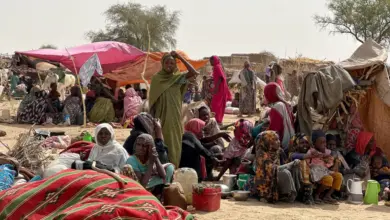
TUNIS (Reuters) – Tunisia’s moderate Islamist Ennahda party may choose a candidate from outside its ranks to head government, two sources said on Friday, as it seeks consensus with other parties for a coalition.
Following victory in last month’s parliamentary election, Ennahda will be the biggest party but with only 52 of 217 seats, forcing it to compromise to form a cabinet.
It had previously decided one of its leaders should be prime minister because of the electoral mandate.
But that was not accepted by potential partners: Attayar with 22 seats, Achaab’s Movement with 16 seats and current Prime Minister Youssef Chahed’s Tahya Tounes party with 14.
Only the Conservative Karama coalition, with 21 seats, agreed.
“There is possibility that a figure from outside the party will be nominated to head the next government,” a senior Ennahda official told Reuters.
“Ennahda is likely to accept the presidency of parliament and approve an independent figure that can win the confidence of all parties involved in the coalition.”
The party was due to discuss the issue on Saturday and Sunday, the official added.
Another political source said there is no shortlist, but added that former parliament speaker Mustapha Ben Jaafar and two former finance ministers Elyes Fakhfakh and Fadel Abdel Kefi were among potential candidates.
Ennahda has excluded two parties from talks: Heart of Tunisia, which holds 38 seats and is led by the media magnate Nabil Karoui, and the Free Constitutional Party led by Abir Moussa, with 17 seats, which opposes the Islamists.
Ennahda is expected to reveal its choice for prime minister by the next week. If it cannot form a government within two months, the president can ask another group to try. If that fails and the deadlock persists, there will be another election.
The North African country has been hailed as the Arab Spring’s only democratic success because protests toppled autocrat Zine al-Abidine Ben Ali in 2011 without triggering the kind of violent upheavals seen in Syria and Libya.
But multiple cabinets since then have failed to resolve economic problems, including high inflation and unemployment.
Reporting by Tarek Amara; Editing by Andrew Cawthorne
Image: FILE PHOTO: Supporters of Tunisia’s moderate Islamist Ennahda party celebrate, after the party gained most votes in Sunday’s parliamentary election, according to an exit poll by Sigma Conseil broadcasted by state television, in Tunis, Tunisia October 6, 2019. REUTERS/Zoubeir Souissi/File Photo




